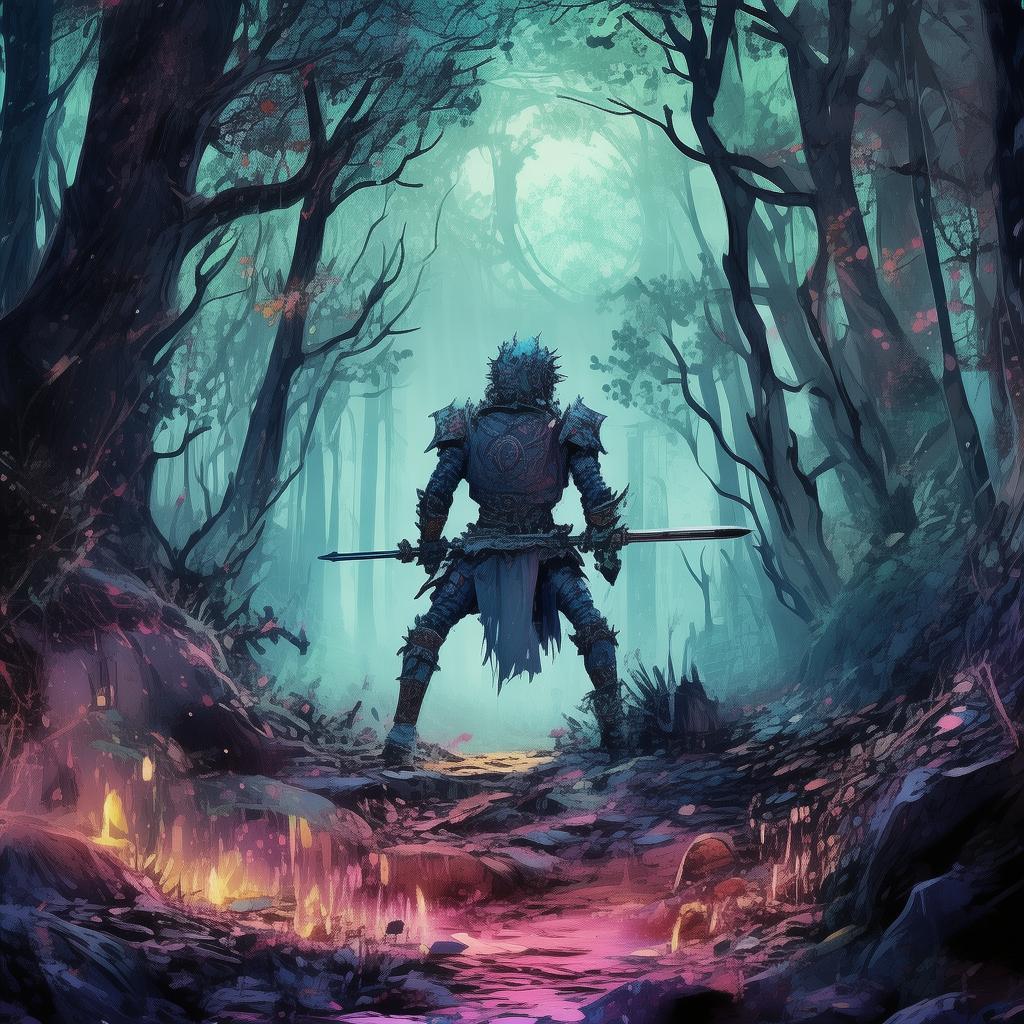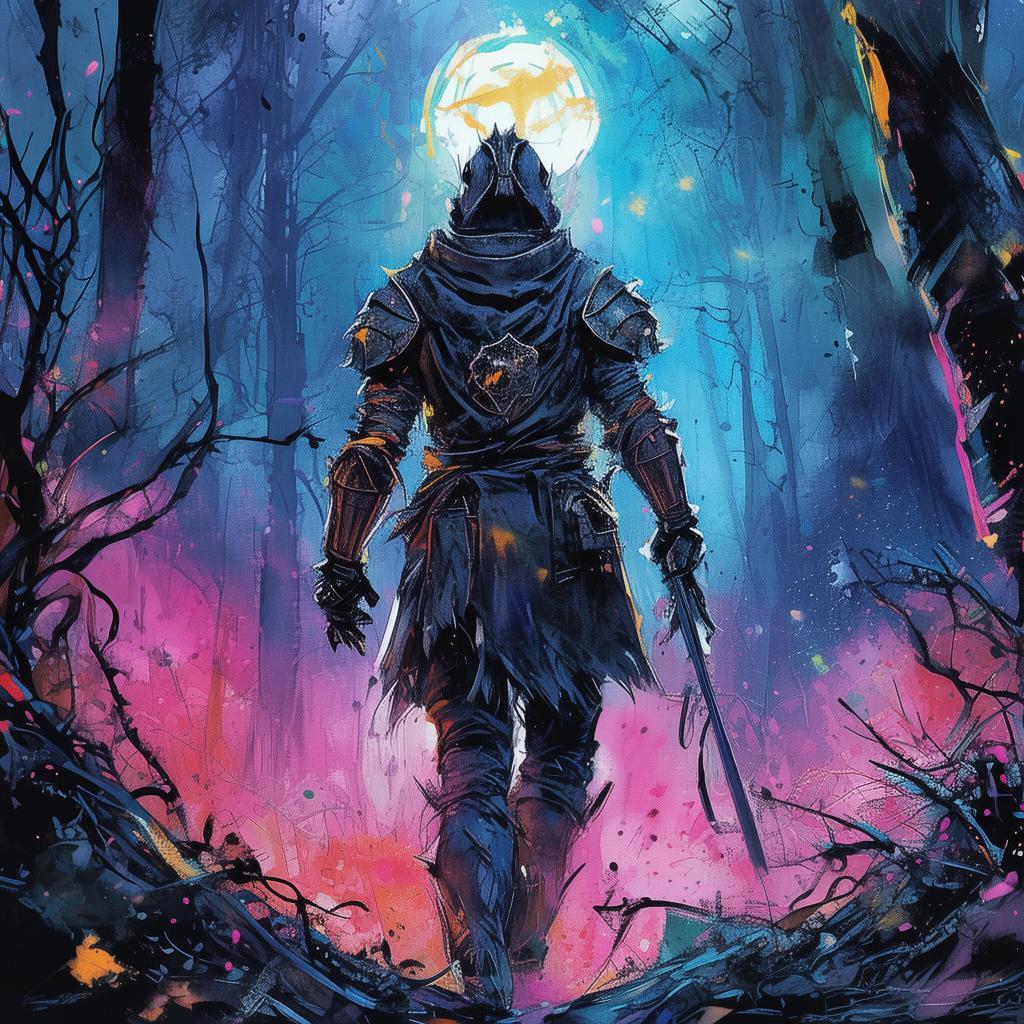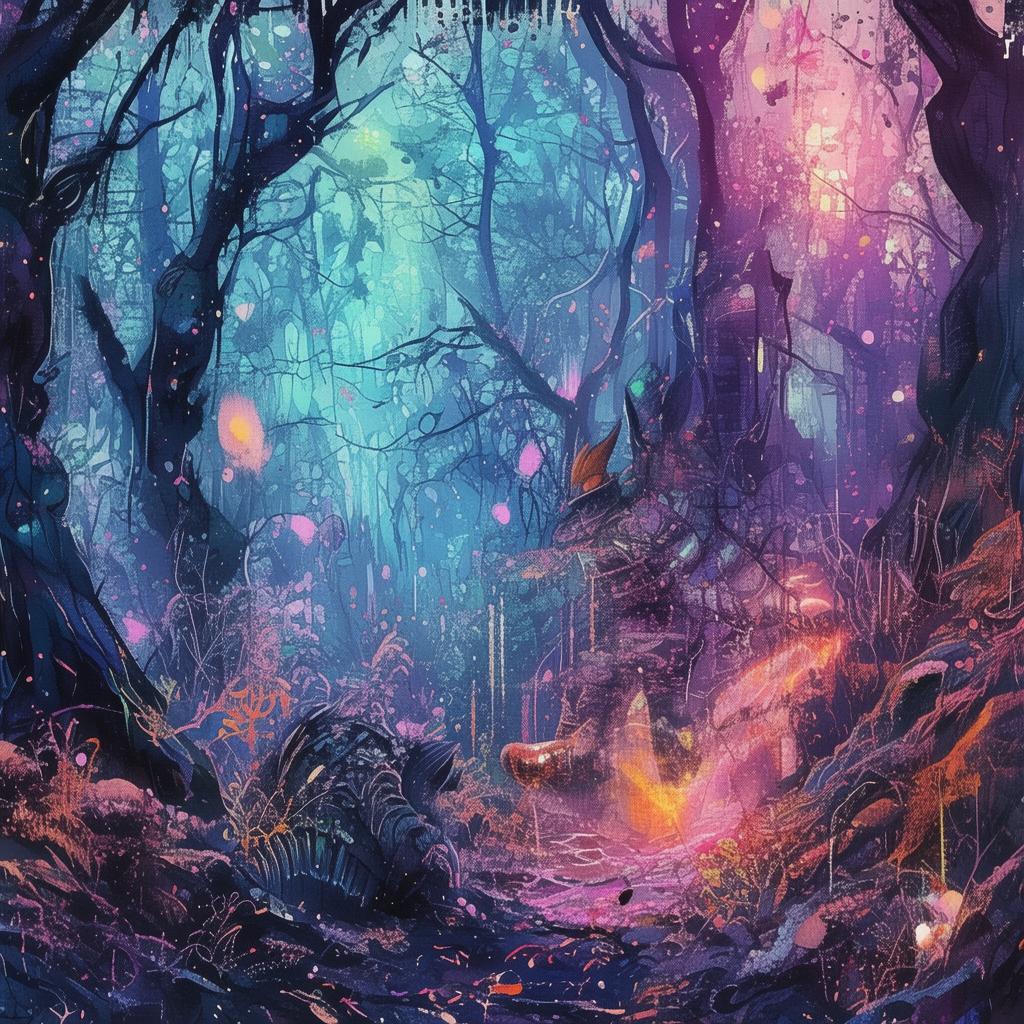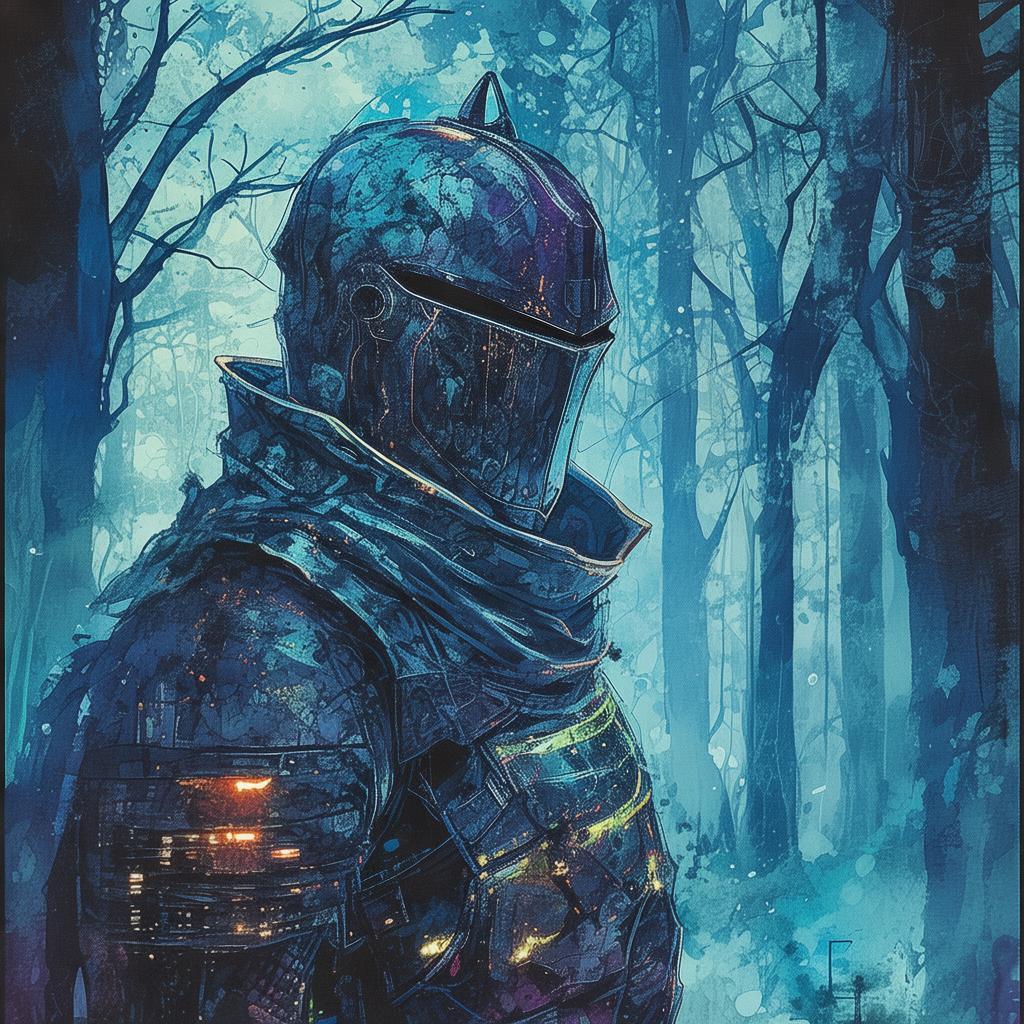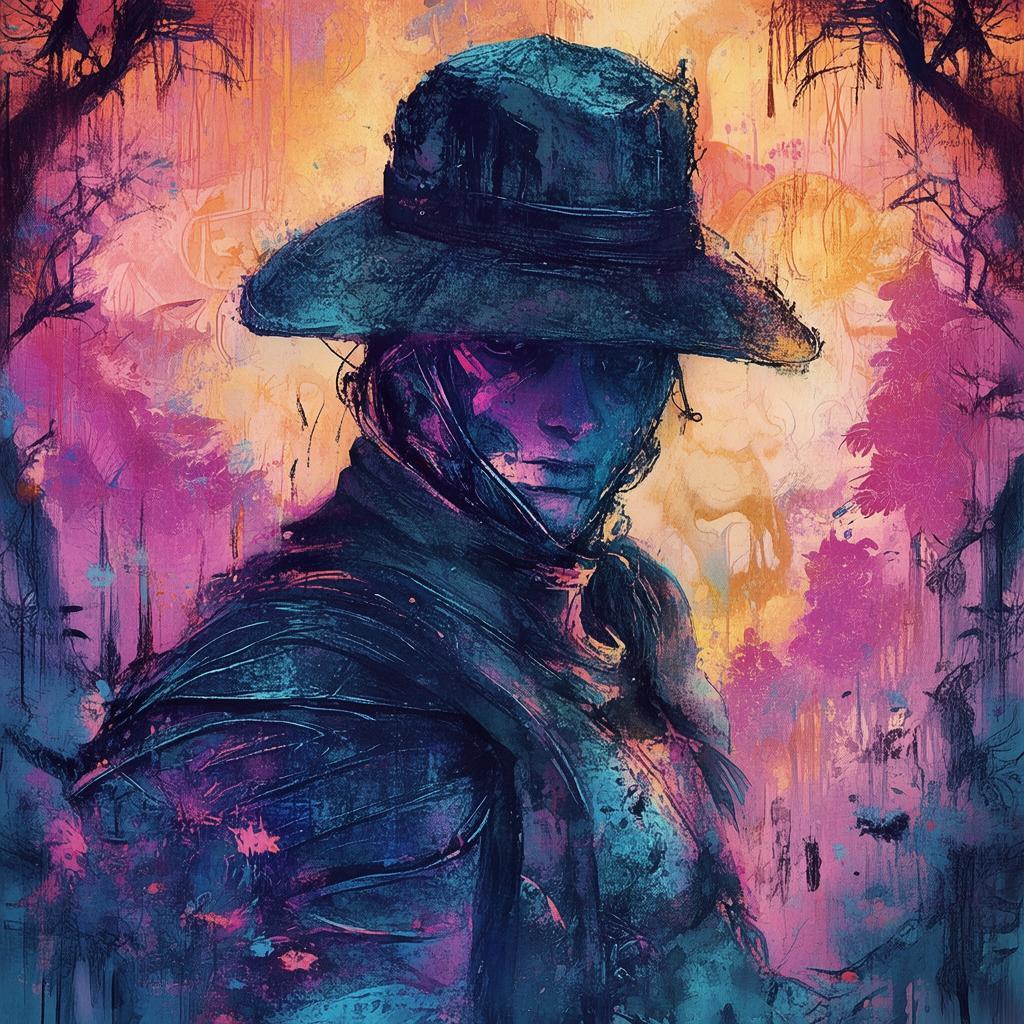The Weaver's Dilemma: Nuwa's Redemption
In the heart of the ancient land of Nuwa, where the heavens and the earth were but a fragile tapestry, there lived a weaver of celestial loom, her name was Aya. Aya was not an ordinary weaver; she was a guardian of the divine threads that wove the very fabric of the cosmos. Her loom was the axis of the universe, and her hands were the creators of fate.
The tale of Aya's origin was as old as the mountains and as deep as the oceans. She was born from the tears of the primordial goddess, Nuwa, who had been tasked with restoring the world after the great flood. Nuwa had used her own bones to repair the sky and her hair to fill the cracks in the earth, but the task left her with a heavy heart and a body that was no longer whole.
Aya's destiny was intertwined with that of her mother. As the daughter of a goddess, she was chosen to become the weaver of the cosmos, tasked with the monumental duty of ensuring the balance of the world. The threads she wove were the threads of fate, the threads of life and death, the threads of destiny.
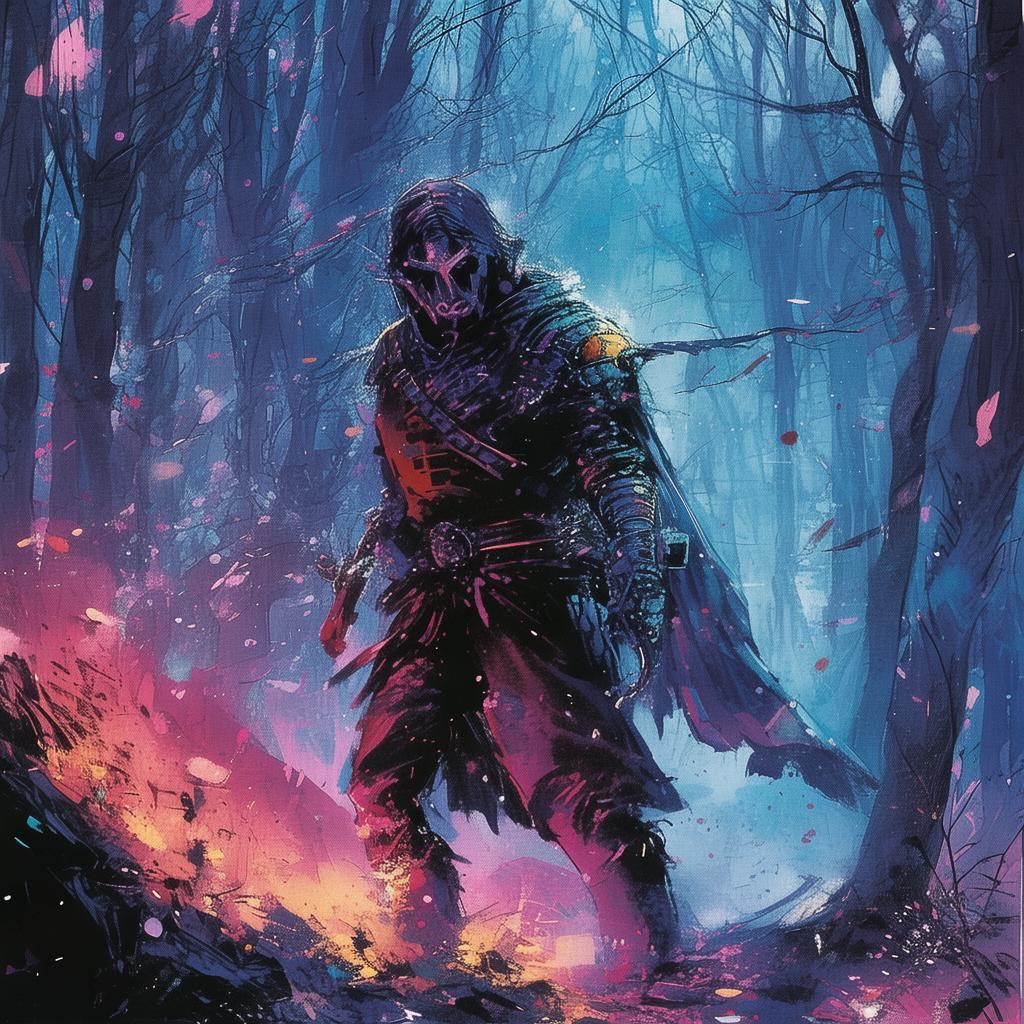
The Weaver's Oath was a solemn vow that Aya had taken upon herself. It was a promise to weave with fairness and to ensure that every thread was as just as the next. Yet, as the years passed, Aya began to see the weight of her responsibility. The threads she wove were not just simple lines on a loom; they were the lives of countless beings, and the mistakes she made were irrevocable.
One day, as Aya worked her loom, she noticed a thread that seemed out of place. It was a thread of red, unlike the rest that were of a golden hue. It was a thread of chaos, a thread of destruction. Aya knew that this thread was a harbinger of doom, a sign that the balance of the world was in peril.
The weaver of the cosmos knew she had to act, but the choice before her was dire. If she removed the thread, she might save the world, but the person whose life it represented would surely die. If she left it, the world would be consumed by the chaos it represented.
Aya sought counsel from the ancient spirits of the land, but they were silent. She turned to her mother, Nuwa, who had become an ethereal figure, her form shifting and changing like the clouds. Nuwa's eyes, though, were clear and piercing as she looked upon her daughter.
"Daughter," Nuwa's voice was a whisper that carried the weight of the ages, "you must choose wisely. Remember the Weaver's Oath, but also remember that sometimes, the greatest sacrifice is not the one that saves, but the one that allows others to live."
Aya took a deep breath and reached out to the thread. With a single deft motion, she snipped the red thread from the loom. The world seemed to pause for a moment, and then a great wind swept through the land, the sound of the loom's shuttle ceasing.
As the wind passed, the world was reborn. The chaos that the red thread represented was gone, and with it, the threat to the world. But the person whose life the thread represented was not so fortunate. They were no more, their life snuffed out by the very weaver who had once promised to weave with fairness.
Aya stood before the loom, her heart heavy with the weight of her decision. She had saved the world, but at what cost? The balance of the cosmos had been restored, but at the expense of a life that could have been.
The people of Nuwa, however, did not see it as a sacrifice. They saw it as the act of a guardian who had chosen the greater good over the lesser. They sang songs of Aya, the weaver who had given her life to protect the world.
And so, the tale of Aya and the Weaver's Dilemma was told for generations, a story of a weaver who faced a choice that would define her destiny and the fate of the world. It was a story of sacrifice, of the balance between justice and chaos, and of the profound impact one person's actions could have on the cosmos.
In the end, Aya's choice was not without its consequences. She had become a symbol of the delicate balance that kept the world in harmony, and her story served as a reminder to all that sometimes, the greatest acts of heroism are not in the doing, but in the facing of the impossible.
✨ Original Statement ✨
All articles published on this website (including but not limited to text, images, videos, and other content) are original or authorized for reposting and are protected by relevant laws. Without the explicit written permission of this website, no individual or organization may copy, modify, repost, or use the content for commercial purposes.
If you need to quote or cooperate, please contact this site for authorization. We reserve the right to pursue legal responsibility for any unauthorized use.
Hereby declared.
